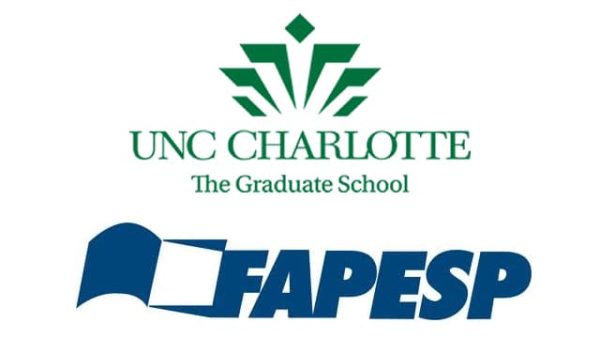Fourth round of funding available through SPRINT Program

UNC Charlotte’s Graduate School and the State of São Paulo Research Foundation (FAPESP) are entering the fourth round of funding for University and São Paulo-based researchers through the joint initiative known as the SPRINT Program.
SPRINT is accepting proposals from UNC Charlotte faculty researchers for joint funding with FAPESP. The maximum budget for each proposal is $20,000 from each party. The Graduate School will fund the activities of Charlotte-based researchers and FAPESP will fund São Paulo-based researchers. Submissions will be accepted from all fields of science, technology, education and, mathematics through Oct. 26.
Juan Vivero-Escoto, assistant professor of chemistry, was the most recent recipient of a SPRINT award. He received $16,450 to fund the project “Multifunctional Hybrid Nanoparticles to Enhance Photodynamic Therapy (PDT) and Photodynamic Inactivation (PDI) Efficacy.” In the effort, Vivero-Escoto is working with world-renown researcher Vanderlei Bagnato and Natalia Inada, both from the Centro de Pesquisa em Óptica e Fotônica (CePOF) at Sao Carlos University in São Paulo, Brazil.
This collaboration combines the expertise of Vivero-Escoto’s UNC Charlotte-based group in the design, synthesis and characterization of hybrid nanoparticles for photodynamic therapy with the expertise of Bagnato’s team that applies the therapy to cancer and microbial systems.
Photodynamic therapies use drugs that when exposed to light kill nearby cells. Thus the drugs can be targeted to kill disease-causing cells in a specified area.
“This research leverages our ability to work on very small scales (e.g. atoms) together with light-based therapies to treat just the disease without the side effects,” explained Vivero-Escoto. “The targeted treatment of cancer with photodynamic therapy avoids the poisoning of the whole patient associated with traditional chemical and radiation therapies. In the case of treating bacterial infections, photodynamic therapy used to kill just the bacteria in the infection contributing to resistance in other bacterial populations which occurs when an antibiotic is administered to the whole body.”
Tom Reynolds, associate provost and dean of UNC Charlotte’s Graduate School, noted, “Collaborations between UNC Charlotte and São Paulo address scientific issues that both regions share including fighting cancer, preserving biodiversity and abating the burden of infectious disease such as Zika virus.”
As one of Brazil’s largest GDP contributors, the state of São Paulo generates impressive funding for research that is administered by FAPESP. In 2014, FAPESP’s disbursements reached the equivalent of $390 million (U.S. dollars).
Daniel Janies, UNC Charlotte Belk Distinguished Professor of Bioinformatics and Genomics and director of Global Research Collaborations for the Graduate School, co-chaired the inaugural FAPESP week in Washington D.C., in 2011 and brought the event to North Carolina in 2013. He is the campus liaison to FAPESP and other research stakeholders in Brazil and throughout Latin America.
“The level of access to research funding in São Paulo has allowed their scientists to focus on important problems rather than being overwhelmed with finding financial resources for research,” explained Janies. “By taking the lead to organize these funding programs, UNC Charlotte’s Graduate School is opening doors for much broader collaborations between our faculty and their counterparts in the State of São Paulo.”
Prior SPRINT award recipients include Inna Sokolova, professor and vice chair of research, Department of Biological Sciences, who manages a $10,000 research budget and partners with São Paulo researcher Fernando Ribeiro Gomes, Instituto de Biociências, University of São Paulo, on their joint project researching the effects of extreme seasonality on metabolism and immunity of amphibians in a tropical semi-arid zone, and Xinghua “Mindy” Shi, an assistant professor in the Department of Bioinformatics and Genomics, who was awarded $ 20,000 for the research proposal “An Integrative Analysis of Protein Kinases in Childhood Acute Lymphoblastic Leukemia.” Shi has partnered with professor Paulo Arruda from the Department of Genetics at State University of Campinas and Jose Andres Yunes, principal investigator at Centro Infantil Boldrini.